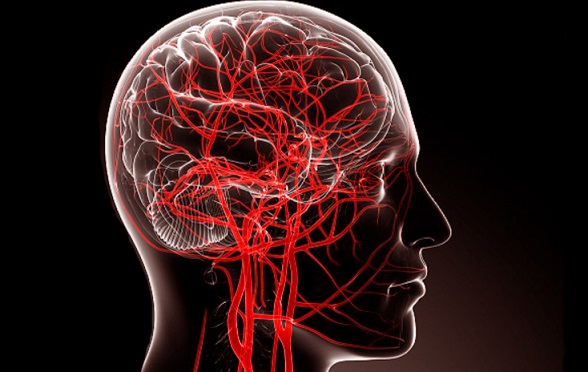Nikhil Prasad Fact checked by:Thailand Medical News Team Nov 24, 2025 3 months, 22 hours, 45 minutes ago
Medical News: Growing Concern Over Long-Lasting Fatigue
A new study by researchers from the Medical Center – University of Freiburg in Germany has uncovered an important clue about why so many people with Post- COVID-19 Condition continue to battle deep and persistent fatigue months after infection. This
Medical News report examines how the team found reduced blood flow in specific brain regions of affected patients, helping explain why normal daily activities feel overwhelmingly exhausting.
 Researchers identified reduced blood flow in right occipital brain regions as a key factor linked to severe fatigue
Researchers identified reduced blood flow in right occipital brain regions as a key factor linked to severe fatigue
in Post COVID patients.
What The Researchers Investigated
The study involved experts from the Department of Neurology and Clinical Neuroscience, the Department of Diagnostic and Interventional Radiology, the Department of Stereotactic and Functional Neurosurgery, the Department of Neuroradiology, and the Freiburg Brain Imaging Center. They studied 55 individuals who met official WHO criteria for Post-COVID Condition and compared them with 36 people who recovered from COVID-19 without long-term symptoms.
All participants underwent detailed neurological examinations and MRI brain scans using a special technique called arterial spin labeling. This method measures how much blood flows through different parts of the brain, which is important because healthy brain activity depends heavily on normal blood supply.
Key Findings Show Blood Flow Reduction in Occipital Regions
The researchers found that although most scans looked structurally normal, the Post-COVID group had lower blood flow in the right middle occipital gyrus and the right angular gyrus. While these changes were not strong enough to meet the strictest statistical thresholds, a clear pattern emerged when they looked more closely.
Patients who reported the most severe fatigue on the WEIMuS questionnaire consistently showed the lowest blood flow in these right-sided occipital brain areas. This relationship was strongest for physical fatigue. Mental fatigue showed a weaker trend. No direct links were found with memory scores, smell problems, or depression levels.
The occipital lobe plays a major role in processing visual information and supporting attention, multitasking, and the brain’s ability to stay alert. Reduced activity or blood flow in this region has also been observed in conditions like chronic fatigue syndrome, Crohn’s disease fatigue, and post-stroke fatigue, suggesting that disrupted occipital function may be a universal pathway for persistent exhaustion.
What This Means for Patients
The study offers valuable scientific support for people suffering from Post-COVID fatigue, showing that their symptoms are not psychological but connected to measurable brain changes. Reduced blood flow in the right occipital region could become a useful biomarker for diagnosis and may guide future treatments. This discovery also helps explain why patients struggle with focus, energy l
evels, and visual-related tasks.
Conclusion
The findings highlight that Post-COVID fatigue is linked to a real and detectable decrease in blood flow to specific areas of the right occipital lobe. This insight strengthens the growing evidence that COVID-19 can leave long-term neurological effects, and understanding these changes is essential to improving care. With further research, doctors may one day use these patterns to diagnose Post-COVID Condition earlier and develop targeted therapies that restore normal brain perfusion.
The study findings were published in the peer reviewed journal: PLOS One.
https://journals.plos.org/plosone/article?id=10.1371/journal.pone.0335038
For the latest COVID-19 news, keep on logging to Thailand
Medical News.
Read Also:
https://www.thailandmedical.news/articles/coronavirus
https://www.thailandmedical.news/articles/long-covid
